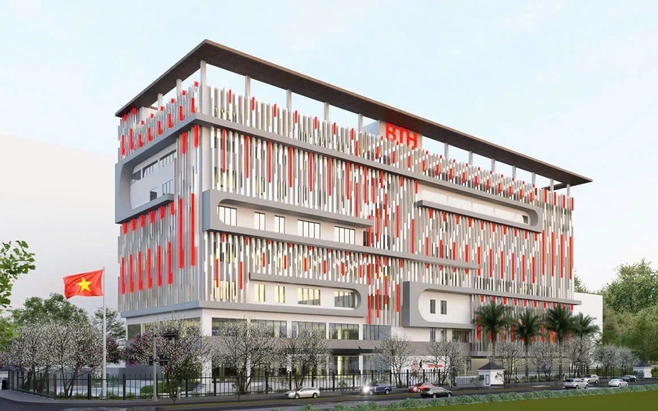
Vietnam sounds alarm as hospitals run low on blood supplies
Hospitals and blood centers across Vietnam, from Ho Chi Minh City and Can Tho to Hanoi and Nghe An Province, are experiencing critical shortages of blood for life-saving treatments.
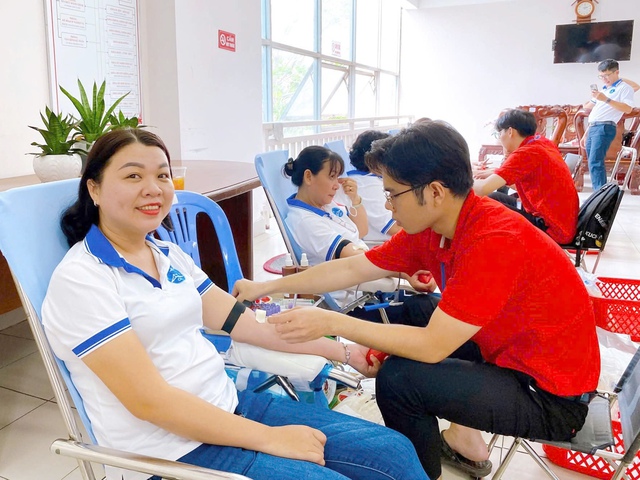
Staff from the Can Tho Center for Disease Control donate blood at a local drive. Photo: Thai Luy / Tuoi Tre
At the National Institute of Hematology and Blood Transfusion (NIHBT) in Hanoi—the largest blood reserve center in northern Vietnam—an urgent requirement of 30,000 units is needed immediately, including 15,000 units of type O.
Over the next two months, July and August, the institute expects demand to reach 90,000 units for 180 hospitals in northern provinces.
In Nghe An Province, the local blood transfusion center has reported daily needs of 300 units.
With no blood drives held since the end of May, patients—particularly those with blood disorders like thalassemia—are now waiting two to five days for transfusions, down from routine access.
The center said the lack of drives has caused treatment delays, with many patients relying on family donors to fill the shortfall.
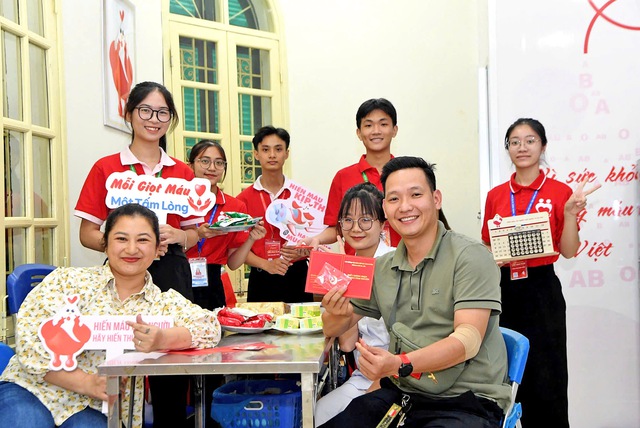
Volunteers give blood at a donation site in Hoan Kiem Ward, Hanoi, following an appeal from the National Institute of Hematology and Blood Transfusion. Photo: Duong Lieu / Tuoi Tre
Survey data from Tuoi Tre (Youth) newspaper shows nationwide shortages since early June.
Many hospitals and blood banks in Ho Chi Minh City, Hanoi, Nghe An Province, and Can Tho have issued public appeals for voluntary donations.
In Hanoi, donations can be made at the National Institute of Haematology and Blood Transfusion at 5 Pham Van Bach Street or fixed blood donation points in Hanoi at 18 Quan Su Street; 132 Quan Nhan Street; 10, Alley 122, Lang Road; and Agricultural General Hospital on National Highway 1A in Ngoc Hoi Commune.
In Ho Chi Minh City, donors can visit the Blood Transfusion Hematology Hospital (BTH) at 118 Hong Bang Street in Cho Lon Ward, 24 Nguyen Thi Dieu Street in Xuan Hoa Ward, 106 Thien Phuoc Street in Tan Hoa Ward, and 466 Nguyen Thi Minh Khai Street in Ban Co Ward.
Two additional blood donation sites are located at 60A Ton That Tung Street in Truong Vinh Ward, Nghe An Province and 317 Nguyen Van Linh Street in Tan An Ward, Can Tho City.
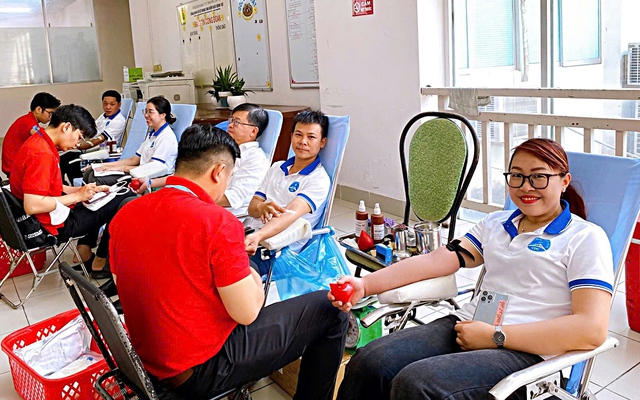
Employees of the Can Tho Center for Disease Control participate in a blood donation campaign. Photo: Thai Luy / Tuoi Tre
Dr. Pham Thanh Viet, deputy director of Cho Ray Hospital in Ho Chi Minh City, said the hospital's supply remains adequate due to advance planning.
However, blood banks citywide, serving up to 800 units daily, are still struggling to meet demand.
Ho Chi Minh City health authorities have instructed local Red Cross chapters to intensify blood donation drives at the ward and commune level to stabilize supplies.
Tran Truong Son, chairman of the Ho Chi Minh Red Cross, said the shortage stems from recent administrative restructuring that disrupted coordination at the grassroots level.
He expects inventories to normalize by the end of July once local organizing committees are re-established.
"Each unit of blood can save a life. Donors are urgently needed," said Professor Nguyen Ha Thanh, director of NIHBT, calling on healthy individuals to donate.
Patients and medical staff have echoed the call.
Duong Bich Ngoc, a thalassemia patient from Vinh Phuc Province, said she and her son have required over 800 units since 2008.
Nurse Nguyen Hoang Long, from a Hanoi hospital's emergency department, recalled times when he and colleagues had to donate personally to nearby accident victims.
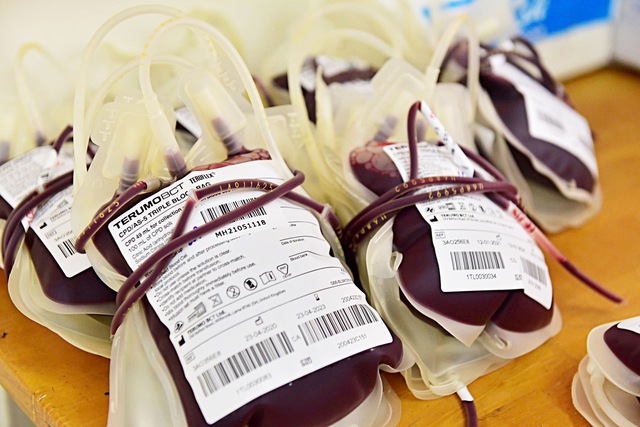
Blood bags collected from voluntary donors are prepared for transfusion to patients in need. Photo: D. Phan / Tuoi Tre
Since the inception of voluntary blood donation drives in 1999, Vietnam has collected nearly 22 million units, with the voluntary rate rising from 30 percent to 98 percent today.
In 2024 alone, the country collected 1.7 million units and supplied over three million blood products to more than 700 medical facilities.
According to Dr. Phu Chi Dung, director of BTH in Ho Chi Minh City, the city will soon begin construction on a new blood bank with a capacity four times greater than the hospital's current facility.
The new blood bank, costing VND699.5 billion (US$26.8 million), is slated to open in January 2026 near Tan Kien Medical Complex in Ho Chi Minh City.
It is expected to handle up to one million units annually, compared to BTH's current 250,000-unit capacity.
Bao Anh - Xuan Mai - Duong Lieu / Tuoi Tre News
Link nội dung: https://news.tuoitre.vn/vietnam-sounds-alarm-as-hospitals-run-low-on-blood-supplies-103250712154012302.htm
